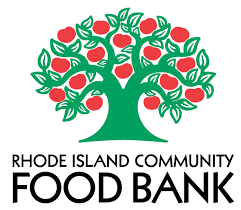PROVIDENCE – About one in four households in Rhode Island lacks adequate food and underlying medical conditions that increase the risk of severe illness from COVID-19 are prevalent among food-insecure Rhode Islanders.
Those two are among the major findings in the Rhode Island Community Food Bank’s 2020 Status Report on Hunger in Rhode Island, released Monday. The five-page report outlines data as to how food insecurity soared as the economy declined during the ongoing pandemic, increased demand for food, how low-income children missed out on school meals and recommended action steps to curtail the problem.
According to the report, researchers found that 25.2% of households worried about having adequate food. That percentage is not only close to triple the 9.1% share of households from 2017-19, which had been declining over the last decade since the Great Recession, but it is also the highest level of food insecurity recorded in Rhode Island in 20 years, the report states.
“The pandemic drastically reversed this trend,” the report states.
The report also notes that Black and Latino Rhode Islanders have been the hardest hit with food insecurity. Thirty-six percent of Black households and 40% of Latino households are considered food insecure, the report states.
To meet the demand, the food bank distributed 1.6 million pounds of food, 45% more than normal, to 68,000 people per month during the pandemic. Before the health crisis, the food bank was serving 54,000 people per month, and the number of hotline calls for food assistance between March and August increased by 77% compared to the same period in 2019.
Low-income children have been impacted as well, according to the report. When schools closed in the spring and switched to “grab-and-go” free or reduced-priced meals, schools distributed 2.3 million such meals from March until the end of the school year. That figure is “less than half” of the free and reduced-price meals served to students when schools are open, the report states.
The report also outlined four action steps in order to improve the food outlook in the Ocean State. They are:
- Urge Rhode Island’s Congressional Delegation to pass another COVID-19 relief bill that brings back supplemental unemployment compensation and boosts SNAP benefits through this economic downturn.
- Petition the U.S. Department of Agriculture to provide pandemic electronic-benefit transfer assistance to all children from low-income families when schools are closed for summer vacation.
- Advocate for the R.I. Department of Human Services to implement a comprehensive SNAP outreach program to help newly unemployed Rhode Islanders enroll.
- Contact state legislators and ask them to support Gov. Gina M. Raimondo’s call for increased funding for the food bank.
James Bessette is the PBN special projects editor, and also covers the nonprofit and education sectors. You may reach him at Bessette@PBN.com. You may also follow him on Twitter at @James_Bessette.













